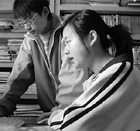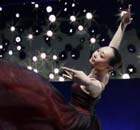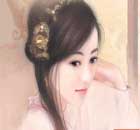Economy
Luoshe's peasant piano makers
By WANG XIAOTIAN (China Daily)
Updated: 2010-05-04 07:44
 |
Large Medium Small |
Town files for unified brand as quality and jobs soar
Chinese peasants in Zhejiang province are gearing up to shock the industry by providing first-class pianos with their own brand Luoshe.
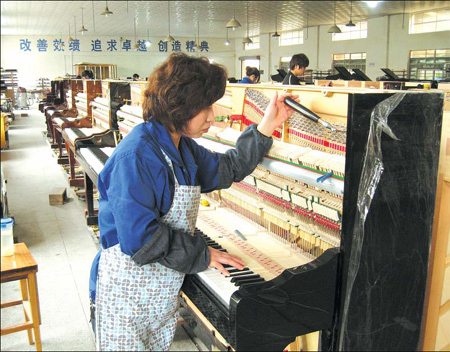 Tuning a piano in preparation for final delivery. [Wang Xiaotian / China Daily] |
As a major piano production base in China, 47 sq m Luoshe town of Deqing country has 46 enterprises making the instrument and accessories.
Pianos producers employ more than 2,000 people and have combined assets surpassing 200 million yuan. The area makes 30,000 pianos each year, 10 percent of the national total
In 2009, despite the economic slowdown, the industry had revenues of 350 million yuan, an 18 percent increase, and 45 million yuan in profits, up 19 percent over 2008.
At the urging of local enterprises, the Luoshe government submitted application last December for a unified trademark - the Luoshe Piano.
"In the future when we attend exhibitions and other promotional activities, enterprises could gather together under one single trademark, and make the consumers know what they appreciate is Luoshe Piano, said Bao Haier, general manager of J.sder Piano Co Ltd.
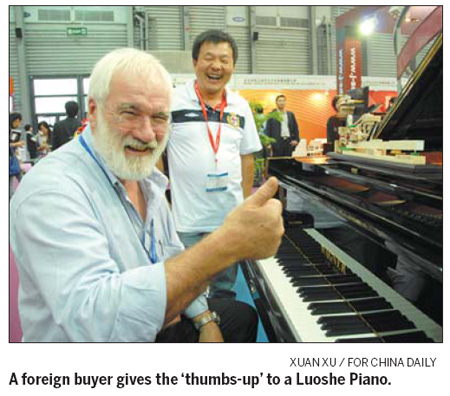
He said the price of his pianos could rise to 200,000 or 300,000 yuan each from around 100,000 today if the Luoshe brand proves popular.
The enterprise produces more than 2,000 pianos each year, half of which are exported to Ireland, France and United States.
Although Bao's business grew 20 percent on average in recent years, more than 30 percent of his products were labeled with outside trademarks.
Wang Youdi, head of the local government, said the lack of any famous brand is due to long-term outsourced manufacturing and the biggest problem to be solved for Luoshe piano makers.
"A brand matters for the future survival of our industry. If we don't have ambitions and are satisfied with the status quo, the profit will go lower and lower and we would be swallowed by rising costs," she said.
To promote Luoshe pianos, the government has organized annual piano festivals since 2001 and encouraged local manufacturers to upgrade their processes by offering subsidies and incentives.
According to Wang, series of sub brands could be made under the flag of Luoshe Piano if they have market potential and meet proper standards.
"What's more, expansion along the industry chain is also quite essential. For example, if an upright piano sells 8,000 yuan to a dealer, the dealer will add 4,000 yuan when selling it to a consumer. Manufacturing techniques and design are also where we should keep our eyes focused," said Wang.
She also expects mergers and acquisitions as a brand system is built up and management at companies becomes more mature.
The town is also planning to split accessory manufacture from piano production to improve quality while using the region's history to add more cultural value to its pianos.
"Instead of simply manufacturing a piano, we hope to provide the surging market with a mixture of reliable quality and adorable brand value," said Bao, whose piano will be displayed in the Life & Sunshine Pavilion during Shanghai World Expo, the first pavilion especially designed for disadvantaged people in the Expo's history.
Deqing county is located in the west of Hangzhou-Jiaxing-Huzhou area of Zhejiang province.
It faces Shanghai to the east, links Hangzhou to the south, neighbors the Taihu Lake to the north and the Tianmu Mountains to the west.
Deqing county has nine towns and two villages under the county's direct jurisdiction.
As one of China's first coastal counties opened to the outside world, Deqing is on the list of nation's top 100 counties in comprehensive agriculture strengths.
Its comprehensive strength is expected to rank 17th in Zhejiang province and 30th in China this year with GDP exceeding 22 billion yuan and per capita income reaching $6,000.

